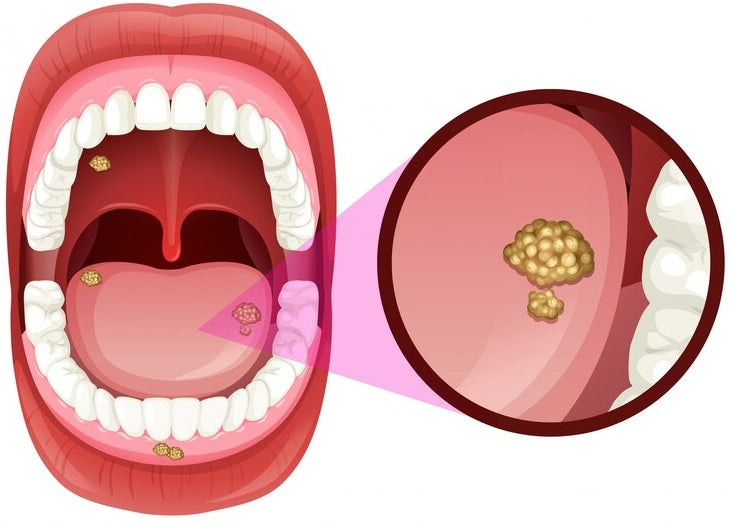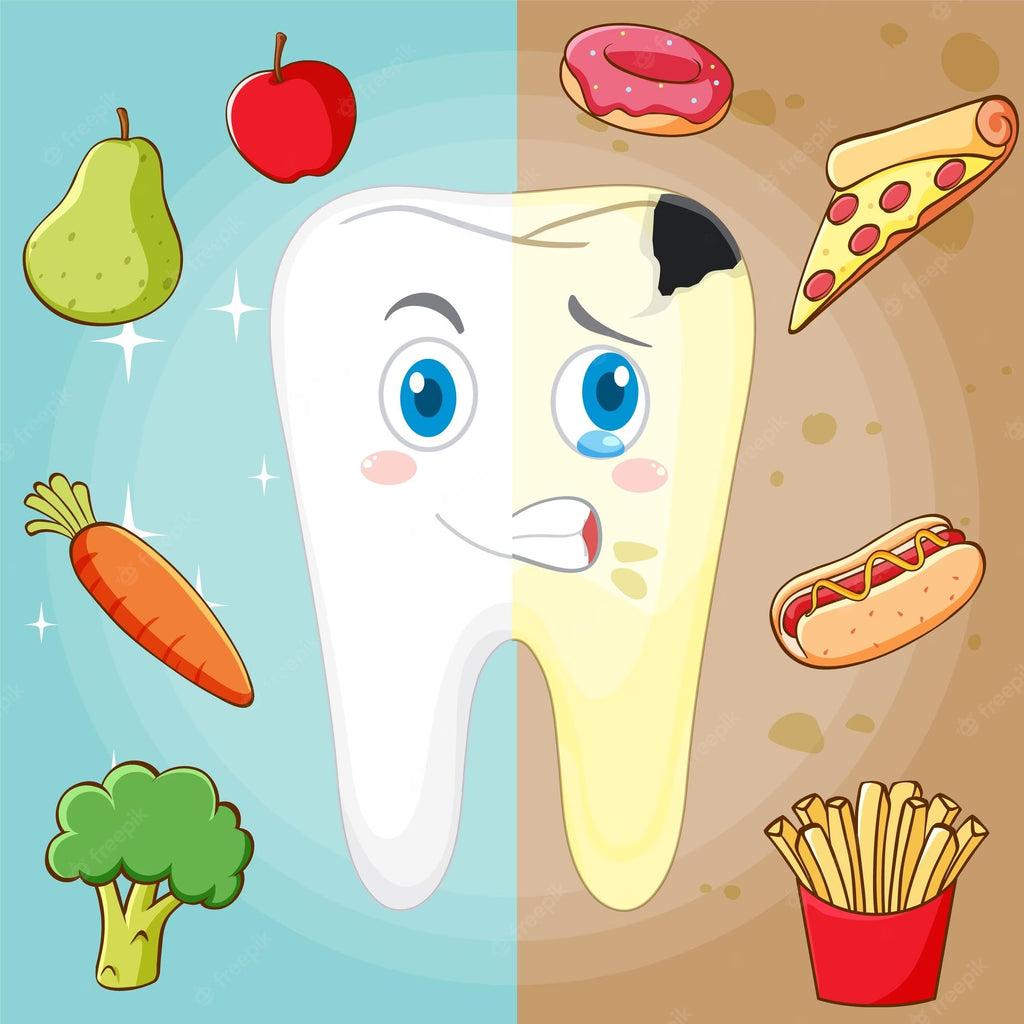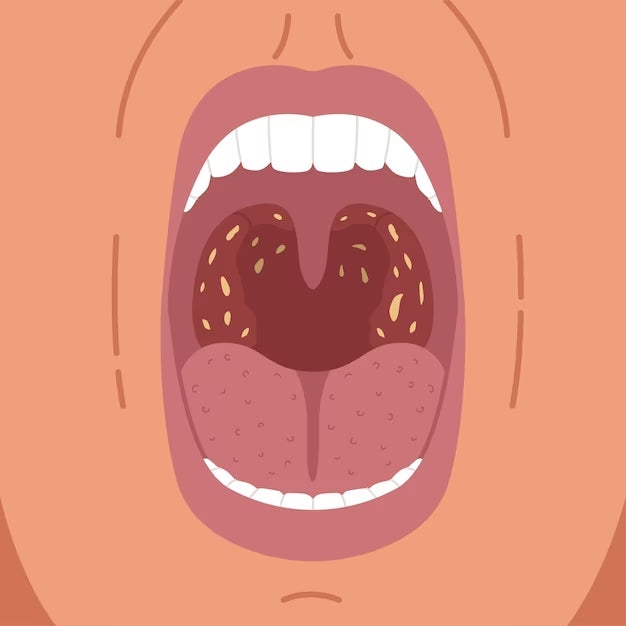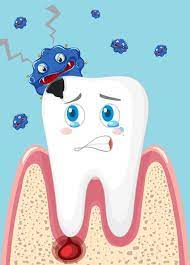Bad Breath and Gum Disease: The Link and How to Prevent It
-
Bad breath is a common problem that affects millions of people worldwide. It can be caused by a variety of factors, including poor oral hygiene, certain foods, and underlying medical conditions. Gum disease, or periodontitis, is another common oral health problem that affects a significant portion of the population. In this article, we will explore the link between bad breath and gum disease and provide tips on how to prevent these issues from occurring.
Link Between Bad Breath and Gum Disease
Gum disease is caused by a buildup of plaque on the teeth and gums, which can lead to inflammation and infection. One of the main symptoms of gum disease is bad breath, which is caused by the bacteria in the mouth that produce volatile sulfur compounds (VSCs). These VSCs are responsible for the foul odor associated with bad breath and can be exacerbated by poor oral hygiene.
Studies have shown that there is a strong link between gum disease and bad breath. In fact, individuals with gum disease are much more likely to suffer from halitosis than those without the condition. This is because the bacteria that cause gum disease also contribute to the production of VSCs in the mouth.

Preventing Bad Breath and Gum Disease
The good news is that both bad breath and gum disease can be prevented through good oral hygiene practices. Here are some tips to help keep your mouth healthy and your breath fresh:
-
Brush and floss regularly:
Brush your teeth at least twice a day and floss at least once a day to remove plaque and food particles from your teeth and gums. This can help prevent gum disease and bad breath. -
Use mouthwash:
Mouthwash can help kill bacteria in the mouth and freshen breath. Look for a mouthwash that contains antibacterial agents to help fight gum disease. -
Clean your tongue:
Bacteria can accumulate on the tongue, causing bad breath. Use a tongue scraper or your toothbrush to gently clean your tongue each day. -
Avoid tobacco products:
Smoking and other tobacco products can contribute to bad breath and gum disease. Quitting smoking can help improve your oral health and reduce your risk of these issues. -
Limit sugary and acidic foods:
Sugary and acidic foods can contribute to the development of plaque and gum disease. Try to limit your intake of these foods and choose healthier options instead. -
Visit your dentist regularly:
Regular dental checkups can help prevent gum disease and detect any issues early on. Your dentist can also provide advice on how to improve your oral hygiene practices.
Conclusion
Bad breath and gum disease are two common oral health problems that are often linked. By practicing good oral hygiene habits, such as brushing and flossing regularly, using mouthwash, and visiting your dentist, you can help prevent these issues from occurring. If you are looking for a natural way to freshen your breath on the go, consider trying Nude Mints. These sugar-free, mints are a convenient way to freshen your breath and promote oral health. Incorporating Nude Mints into your daily routine can be a simple and effective way to keep your mouth feeling clean and fresh.
Ready for a breath freshener that's truly unique? Nude Mints offers a 2-in-1 capsule technology that delivers peppermint extract to your gut without mixing with saliva in your mouth. This seamless delivery sets Nude Mints apart from regular mints and makes them a top choice for fresh breath and oral health. Order yours today!
-
Brush and floss regularly:
Get the freshest news on your favorite mouth cleanser and gut freshener!
Read More
-

Halitosis: Understanding the Causes, Diagnosis, and Treatment for Fresh Breath
Halitosis, commonly known as bad breath, is a condition that affects a large number of people worldwide. It can be an embarrassing and isolating experience, but it is important to know that it is a common problem and that there are effective treatments available. In this article, we will discuss the causes, diagnosis, and treatment of halitosis. Causes of Halitosis Halitosis can have several causes, both internal and external. The most common causes include poor oral hygiene, dry mouth, certain foods and drinks, smoking, and certain medical conditions. Poor Oral Hygiene Poor oral hygiene is the most common cause of halitosis. When food particles and bacteria build up in the mouth, they can cause an unpleasant odor. Brushing and flossing...
-

Crucial Connection Between Nutrition and Oral Health: Guide for Better Dental Care
As a dental health professional, we understand the importance of maintaining good oral hygiene to prevent cavities and gum disease. Brushing twice a day and flossing daily are essential habits, but did you know that nutrition also plays a crucial role in keeping your mouth healthy? In this article, we will explore the connection between nutrition and oral health and how you can make better food choices to support your dental health. How Nutrition Affects Oral Health Your diet can impact your oral health in many ways. A diet high in sugary and acidic foods can increase the risk of tooth decay and gum disease. When you eat sugary foods, the bacteria in your mouth feed on the sugar and...
-

How to Treat Bad Breath Caused by Dry Mouth
Do you ever feel self-conscious about your breath? Do people avoid talking to you because of bad breath? Dry mouth, also known as xerostomia, can cause bad breath and make social interactions uncomfortable. In this article, we will discuss what causes dry mouth, how it leads to bad breath, and what you can do to treat it. Table of Contents What is dry mouth? Causes of dry mouth How dry mouth causes bad breath Signs and symptoms of dry mouth Diagnosis of dry mouth Treating dry mouth Home remedies for dry mouth Professional treatments for dry mouth Tips for maintaining oral hygiene Foods and drinks to avoid with dry mouth Conclusion FAQs What is dry mouth? Dry mouth occurs when...
-

The Relationship Between Diabetes and Gum Disease: Understanding the Link
Diabetes and gum disease are two conditions that may seem unrelated, but research has shown that they are actually closely linked. In fact, individuals with diabetes are more likely to develop gum disease, and those with gum disease are more likely to have difficulty controlling their blood sugar levels. This article will explore the connection between diabetes and gum disease, and provide insights on how you can reduce your risk of developing both. The Relationship Between Diabetes and Gum Disease Diabetes is a condition that affects the body's ability to produce or respond to insulin, a hormone that regulates blood sugar levels. When blood sugar levels are consistently high, it can lead to a range of health complications, including nerve...






